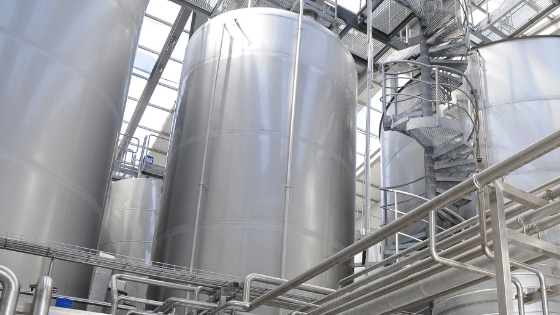Kloeckner Metals sells 5049 aluminum sheet, a magnesium alloy with good hardness. Contact us today for a quote.

5049 aluminum sheet is a non-heat treatable aluminum. Its primary alloying element is magnesium which results in good hardness.
While this aluminum alloy is not heat treatable, it is work hardenable by cold forming, showing good strength and formability. This aluminum grade t is available in a range of tempers which increase the alloy’s overall strength at the expense of ductility.
It is seen in the marine, automotive, construction, and packaging industries.
Applications for this alloy include shipbuilding hulls and structures, packaging, tanks, and automotive parts.
It has good machinability.
It has good weldability.
It is not heat treatable.
While this aluminum alloy is not heat treatable, it is work hardenable by cold forming, showing good strength and formability. This aluminum grade t is available in a range of tempers which increase the alloy’s overall strength at the expense of ductility.
It is seen in the marine, automotive, construction, and packaging industries.
Applications for this alloy include shipbuilding hulls and structures, packaging, tanks, and automotive parts.
It has good machinability.
It has good weldability.
It is not heat treatable.
ANSWER:
These alloys share magnesium as their primary alloying element, resulting in fairly similar mechanical properties. This aluminum sheet shows slightly better hardness than 5052 aluminum, whereas 5052 shows slightly higher strength.
ANSWER:
This alloy demonstrates a Brinell hardness range of 52 to 88.
ANSWER:
These alloys share magnesium as their primary alloying element, resulting in fairly similar mechanical properties. This aluminum sheet shows slightly better hardness than 5052 aluminum, whereas 5052 shows slightly higher strength.
ANSWER:
This alloy demonstrates a Brinell hardness range of 52 to 88.
Between our global footprint, international transportation network,...
Steel base plates are fundamental elements employed in various manufacturing processes. These flat, rectangular...
Metal fabrication is a critical process that transforms raw metal materials into finished products....
The solar industry has undergone a significant transformation by incorporating steel products into various...
The unprecedented pace of solar growth is challenging and reforming America’s construction and engineering...
If you’ve got a roof over your head, it’s partly thanks to purlins. A...
Acquiring highly profitable company with annual sales of around USD 30 million Significant expansion...
A stainless steel depot is a specialized facility or supplier that stocks and provides...
American manufacturers use about 28.2 billion pounds of aluminum every year, 41.6% of it...
Leading steel distributor expands commitment to sustainability in the North American market. Kloeckner Metals,...
At Kloeckner, we are excited to announce that our Santa Fe Springs, CA location...

X
The Kloeckner Metals website uses modern technologies. Unfortunately, your browser doesn't support those technologies.
Download the latest version of one of these browsers to experience the site: